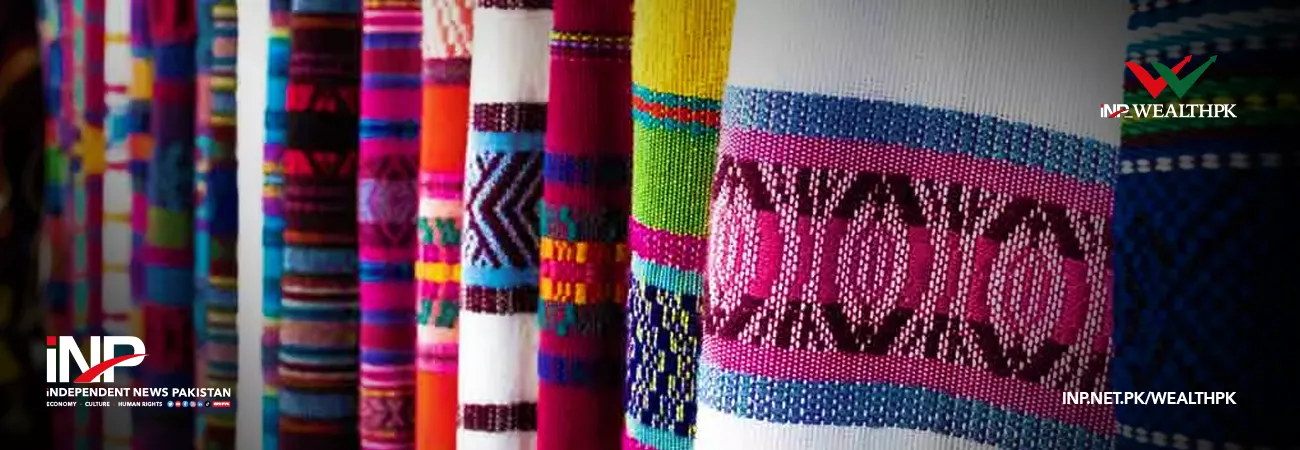INP-WealthPk
Mansoor Sadiq
The Pakistani rupee depreciation and the country’s energy crisis have hit the textile industry hard as about 150 units have been closed during the last five months, WealthPK reports. The closure of the textile and spinning units has rendered about 2.5 million workers jobless besides badly affecting the export of textile items from Pakistan to other countries.
The owners of the textile mills claimed that the cost of production increased 100% during the last six months following an unprecedented raise in the electricity tariff. They said that the electricity tariff was the textile industry was Rs18 per unit, which was increased to Rs36 per unit by the government. They said that the prices of petroleum products also increased from Ra150 per litre to Rs245 per litre during the last six months.
According to the Pakistan Bureau of Statistics, the textile export contributed 61% to the total volume of exports of $31.8 billion during the previous year. The export of knitwear increased by 34.32% and reached $5.12 billion in the financial year 2021-22 as compared to $3.81 billion in the preceding fiscal.
Dr Gohar Ejaz, the patron-in-chief of the All Pakistan Textile Mills Association, told WealthPK that tough decisions were inevitable to resolve the crisis of the textile sector and strengthen the national economy. “We are the fifth largest country in view of population. We have to make Pakistan the fifth largest economy. The government should set priorities to strengthen the economy. Inflation is simply because of the devaluation of the rupee against the dollar,” he added.
He said that the external debt position had not changed since 2018. “Repayments of $23 billion are due and $33 billion (in-hand) needs to be financed. The implementation of IMF’s plan in letter and spirit is crucial to establish a functional structure to enhance exports and regularise the influx of imports,” he added.
Dr Gohar said that Pakistan had a trade deficit of $40 billion with imports of $70 billion and export of only $30 billion while remittances worth $30 billion were expected. He said that the amount was not enough to run the economy. “Pakistan needs to devise requirement-based policies to increase exports. The country is capable of meeting its economic and social needs,” he added.
Following the closure of spinning and textile units during the last five months, the ratio of the textile sector exports has also reduced. APTMA North Zone Chairman Hamid Zaman told WealthPK that the government’s commitment and initiatives were not matching its actions for the textile industry. He said that spinning and textile units had no other option but to halt their operations as the cost of production increased manifold. He added that mounting interest rates, double-digit inflation and depreciation of the Pakistani rupee hindered the textile sector from competing in the international market.
Koh-e-Noor Textile Mills, one of the largest textile units in the country, informed the Pakistan Stock Exchange two days ago about halting operations temporarily. Oher textile units are also intimating the relevant state institutions about the stoppage of their operations.
“Letters of Credit (LC) are not opened for the textile units and raw materials have also turned into scarcity and costly following reduced cotton yield in the country,” said Hamid Zaman. He said that a few days ago, APTMA also approached Primer Minister Shehbaz Sharif to take notice of the situation as millions of people were linked with the textile sector.
On the other hand, the overall cotton yield during 2022-23 will remain 40% low due to the recent devastating floods in the country. As per a report, the cotton yield will be limited to 4.2 million bales, which was 7.3 million bales in the previous fiscal. To meet the country’s demand, 3.5 million bales were imported. In the current fiscal, approximately 7.5 million cotton bales will have to be imported to meet domestic requirements.
At a time when the foreign exchange reserves of Pakistan are at their lowest ebb, additional imports of cotton bales will be a major challenge for the government in the coming months. During the previous fiscal, the overall volume of the export of textile items and garments was $19.3 billion, which could not be achieved in the current fiscal owing to the shortage of cotton in the country.
Credit : Independent News Pakistan-WealthPk




